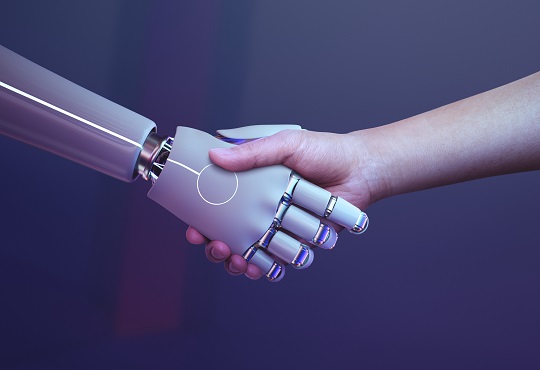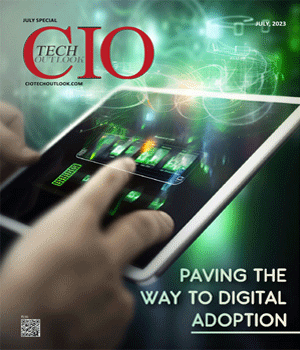
IBM's 'Brain-like' Chip Prototype Promises Greener AI
CIOtechOutlook Team | Monday, 14 August 2023, 02:37 IST
 IBM has stated that their prototype 'brain-like' chip could improve the energy efficiency of artificial intelligence (AI).According to the BBC, there are rising concerns about the emissions produced by vast warehouses filled with computers that run AI systems.
IBM has stated that their prototype 'brain-like' chip could improve the energy efficiency of artificial intelligence (AI).According to the BBC, there are rising concerns about the emissions produced by vast warehouses filled with computers that run AI systems.
As per IBM, this prototype could lead to more efficient, lower-power AI circuits for smartphones.According to the tech major, the prototype's efficiency is due to components that act similarly to synapses in human brains.
In comparison to typical computers, "the human brain is capable of achieving remarkable performance while consuming little power," according to Thanos Vasilopoulos, a scientist at IBM's Zurich research lab.Superior energy efficiency, according to Vasilopoulos, would allow "large and more complex workloads to be executed in low power or battery-constrained environments," such as autos, mobile phones, and cameras.
"Additionally, cloud providers will be able to use these chips to reduce their energy costs and carbon footprint," he added. The majority of chips are digital, meaning that information is stored as 0s and 1s, but the new chip employs memristors, which are analogue components that can store a wide range of numbers.
Memristors are a sort of computing that is "nature-inspired" and mimics brain activity, according to Prof Ferrante Neri of the University of Surrey."Interconnected memristors can form a network resembling a biological brain," he explained.
He was cautiously hopeful about the future of chips based on this technology: "These advancements suggest that we may be on the cusp of witnessing the emergence of brain-like chips in the near future."However, Neri noted that creating a memristor-based computer is not an easy task and that there will be many obstacles in the way of general adoption, such as high material costs and challenging production processes.
"Using these components makes the new chip more energy efficient but the new chip also has digital elements," the report said.
This makes the chip easier to insert into existing AI systems.
In the future, the tech major hopes that chips in phones and cars could be more efficient, leading to longer battery life.
CIO Viewpoint
EdTech Business Models: Unlocking Success in...
By Atulya Kaushik, Co-founder and CEO of PrepInsta
CIO's Role in Driving Enterprise Sustainability
By Manoj Deorukhkar, Chief Information Officer at Sterling & Wilson Limited
Transforming employee experience through the...
By Prasad Ramakrishnan, CIO of Freshworks
CXO Insights
How leveraging technology solutions automates...
By Bimlesh Prasad
Why Digitalization is Crucial to Staying...
By Janifha Evangeline
How Digitization is Shattering Real Estate...












